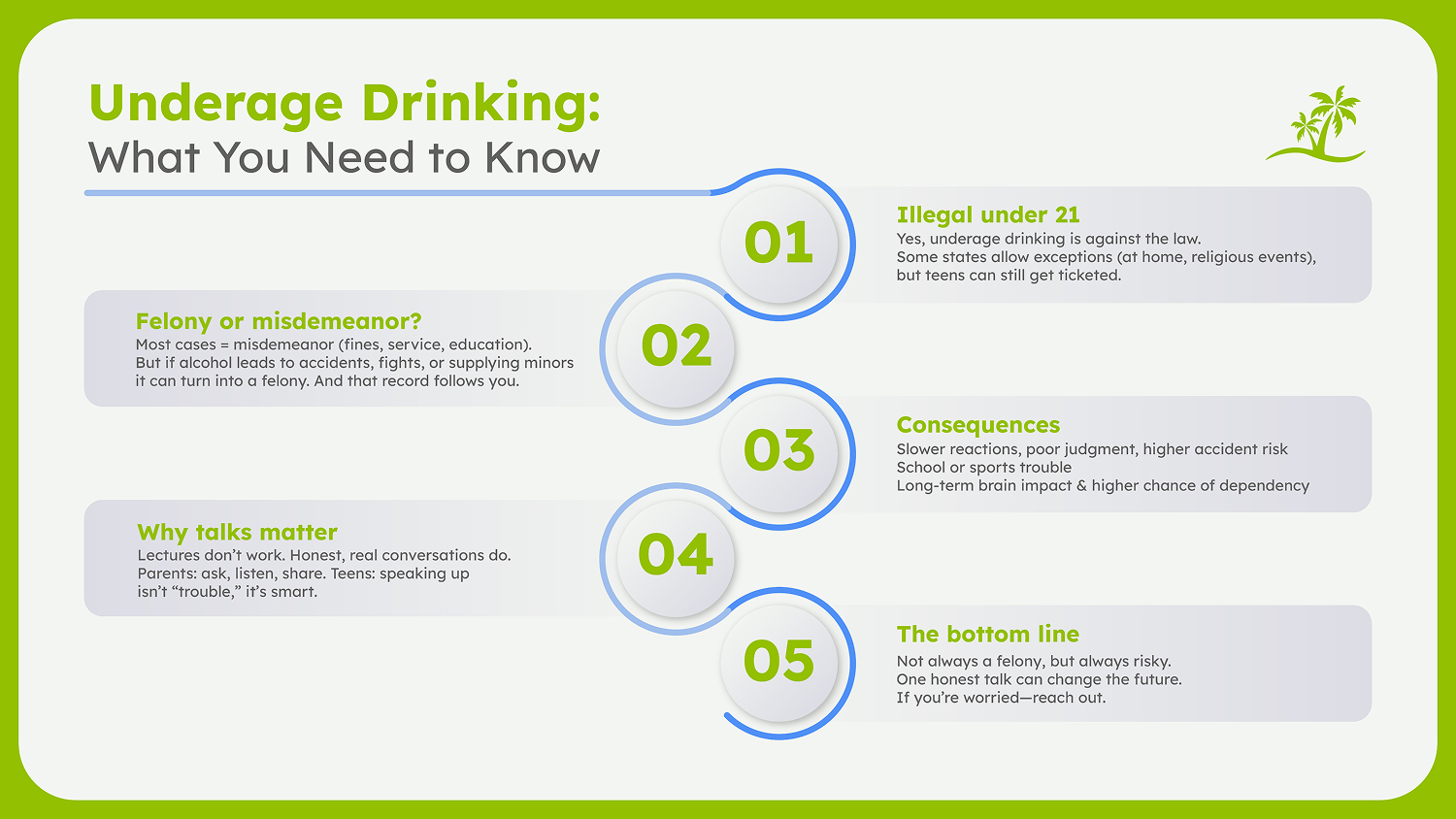- 844-80-PALMS
- info@thepalmsrecovery.com
- 3444 S Congress Ave, Suite A, Palm Springs, FL 33461
Let’s be real—no one wants to think about underage drinking. Parents push the thought away, teens pretend it’s not a big deal, and most of us just hope it’s not happening in our own house. But ignoring it doesn’t make it disappear. If anything, it gives it more room to grow.
Maybe you’re a parent who found an empty can in your kid’s backpack. Maybe you’re a teen scrolling through this, wondering what happens if you get caught.
Yes. Across the U.S., it’s illegal for anyone under 21 to buy, possess, or drink alcohol. That part is clear.
But here’s the catch: not every state plays by the exact same rules. Some allow it at home with parents around. Some carve out exceptions for religious events. Does that make it “safe”? Not really. A cop can still write a ticket, and the law doesn’t always side with “but my mom said it was okay.”
And let’s put the law aside for a second—your brain doesn’t care if it’s legal. Alcohol hits younger brains differently. Judgment isn’t fully developed, reaction times are slower, and the chance of accidents goes way up. That’s why it’s more than just a rule to break—it’s a risk to your health and safety.
This question comes up a lot. Short answer? Usually, no. Most of the time, underage drinking is a misdemeanor. Think: fines, community service, maybe mandatory alcohol education, sometimes a suspended license. Not fun, but not life-ruining either.
But here’s where it gets serious. Add alcohol to something else—an accident, a fight, property damage, supplying alcohol to other minors—and suddenly, it’s not a slap on the wrist. It can escalate to a felony. And a felony record sticks. Jobs, college, travel—it follows you.
So, no, underage drinking by itself isn’t “a felony.” But it can open doors to a situation that absolutely is.
The legal side is just one part. The personal fallout can be worse.
Short-term stuff:
Long-term risks:
One party doesn’t define your life. But sometimes one night does change it.
Here’s the thing: lectures don’t work. Threats don’t work either. What does? Honesty. Being real. Listening.
If you’re a parent, instead of starting with “don’t you dare,” try asking:

Share your own experiences if you can. Good or bad. Show that you get it. The goal isn’t control—it’s guidance.
If you’re a teen, know this: talking about it doesn’t make you “in trouble.” It makes you smart enough to deal with it before it deals with you.
So, is it a felony? Not usually. But is it dangerous? Absolutely. And the consequences—legal, physical, emotional—can reach further than most people realize.
At the end of the day, it’s not just about laws and rules. It’s about staying safe, building trust, and not letting one mistake close doors on your future.
If you’re worried—whether it’s about yourself, your kid, a family member, or a friend—reach out. Ask questions. Talk. Sometimes one honest conversation can change the story before it even begins. Give us a call when you need it!